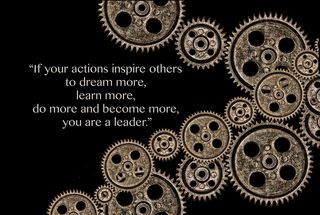What is Congressional Assistance?
It has been “X” months since you filed the VA formal claim, and your sole correspondence from the VA consists of periodic form letters apologizing for the delay. Your calls to the VA inquiring about status reveal only that the claim is still pending, but your client is getting exasperated hearing that the average processing time for approving VA claims is less than “X” months.
 Congressional assistance is when a private constituent requests a member of Congress to inquire on their behalf in the administrative proceedings of a governmental agency, in this case the Department of Veterans Affairs. The purpose of doing so is to force the VA to pull a specific claim from their backlog and expedite it. The actual result is not always that, it seems. There are reports of success from various internet forums dedicated to veterans’ benefits – people who swear that, had it not been for Senator So-and-So, their VA claim would never have been approved. But there are even more grumblings on the same forums that such congressional inquiries merely elicit a form letter, and then your file returns to the backlog BUT at the end of the queue. This is horrific enough to scare you off from considering making any such inquiries, but at times of sheer desperation it can be a tool to make the VA respond, or to be able to get a copy of a VA response. Then sometimes a client’s family will demand it because apparently it had been done successfully by their hairdresser’s brother-in-law’s grandfather. Therefore, you should be aware of the option of requesting congressional assistance with a VA pension claim, how to do it, and when it may be appropriate to do so.
Congressional assistance is when a private constituent requests a member of Congress to inquire on their behalf in the administrative proceedings of a governmental agency, in this case the Department of Veterans Affairs. The purpose of doing so is to force the VA to pull a specific claim from their backlog and expedite it. The actual result is not always that, it seems. There are reports of success from various internet forums dedicated to veterans’ benefits – people who swear that, had it not been for Senator So-and-So, their VA claim would never have been approved. But there are even more grumblings on the same forums that such congressional inquiries merely elicit a form letter, and then your file returns to the backlog BUT at the end of the queue. This is horrific enough to scare you off from considering making any such inquiries, but at times of sheer desperation it can be a tool to make the VA respond, or to be able to get a copy of a VA response. Then sometimes a client’s family will demand it because apparently it had been done successfully by their hairdresser’s brother-in-law’s grandfather. Therefore, you should be aware of the option of requesting congressional assistance with a VA pension claim, how to do it, and when it may be appropriate to do so.
How do you file a Congressional?
First, you need a member of Congress. Our firm generally uses a senator. I don’t know that there is any advantage to having a senator rather than a member of the House of Representatives making the inquiry. However, you must be aware that not all members of Congress may be receptive to making such inquiries. If their platform and/or expressed political views suggest that veterans’ benefits may not be a priority, you may need to approach with caution. Most members of Congress have websites that post information for the types of assistance they provide. Members of Congress who do count a large number of veterans among their constituents may even regularly reach out to explain what specific services they can provide for them. This assistance generally requires a privacy release form that must be signed by the veteran or other type of claimant so the VA will release information to the congressperson’s office.
Our firm sends the privacy release form with a letter requesting assistance on behalf of our client, and includes a timeline of the claim highlighting any major dates relevant to the claim process. We also mention in this letter any circumstances that may merit that the claimant’s request be considered with utmost urgency. This would include statements, if applicable, as to the claimant’s terminal condition, advanced age, and/or financial hardship. Once their office files the inquiry with the VA, that agency must respond within a certain amount of time, even if it is just a form letter apologizing for the delay. The congressperson’s office generally then forwards a copy of the VA correspondence to the claimant.
When do you file the Congressional?
This is the hardest question to answer, and the only quick and easy way to do so is as follows: It depends.
You may be pressured by your client to file a request for congressional assistance at any point after submitting the formal claim, when presumably the VA should have everything it needs to decide the claim. Your client can also certainly request assistance on their own without your firm’s involvement. However, given the mixed results, I would recommend that you consider it primarily as a last resort, meaning you should exhaust all other means first, like calling the VA for status inquiries and to follow up on submitted requests to expedite a claim due to terminal condition, advanced age and/or financial hardship. You also need to decide, given the average amount of time it is taking for the VA to process your firm’s claims, at how many months you are going to seriously consider requesting congressional assistance.
Our firm currently uses the one-year mark after filing a formal claim to start considering this option, but this is subject to change as we see claim processing times change over the years. Bear in mind that processing times vary regionally, and that overuse of your local congressperson will not earn you much love from his or her office. Reserve the request for congressional assistance for those VA claims that truly seem to have dropped off the face of the earth, or for those claimants who may end up in extreme financial straits or who for medical reasons may not survive to receive the benefits to which they are entitled unless they are awarded right away.
Lawyers With Purpose is offering a FREE Webinar on Wednesday, December 2nd at 12 EST on "Trust Planning for VA Benefits After the Proposed Look Back Takes Place" – click here to register now. Transfer penalties for VA claimants are expected to be implemented in February 2016. What does that mean for your trust drafting services? Will we need to change the language in our trusts? Or, worse yet, start using totally new trusts? Attend the upcoming VA Tech School Training on 12/2/15 on Drafting Trusts After the Laws Change and find out! Register today as we have limited space!
By Sabrina A. Scott, Paralegal, The Elder & Disability Law Firm of Victoria L. Collier, PC, and Director of VA Services for Lawyers With Purpose.
Victoria L. Collier, Veteran of the United States Air Force, 1989-1995 and United States Army Reserves, 2001-2004. Victoria is a Certified Elder Law Attorney through the National Elder Law Foundation; Author of “47 Secret Veterans Benefits for Seniors”; Author of “Paying for Long Term Care: Financial Help for Wartime Veterans: The VA Aid & Attendance Benefit”; Founder of The Elder & Disability Law Firm of Victoria L. Collier, PC; Co-Founder of Lawyers with Purpose; and Co-Founder of Veterans Advocate Group of America.






